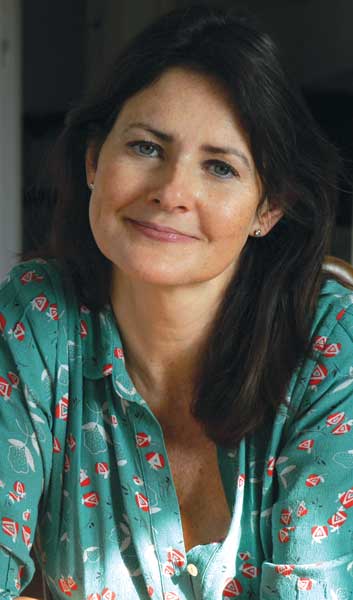Passed/Failed: An education in the life of Cristina Odone, writer, broadcaster and former editor of The Catholic Herald
'My misery started at a school in DC'

Cristina Odone, 49, edited The Catholic Herald for five years and was deputy editor of the New Statesman for six years. Her half-brother's medical condition was the basis of the film Lorenzo's Oil. Her novels include A Perfect Wife and, just out, The Good Divorce Guide.
Like all girls I wanted to be a nun because the nuns at Santa Giovanna Elisabetta looked so happy. They were calm, serene and never needed to raise a hand or voice. The teaching was excellent and we were as quiet as church mice. I was at this bog-standard convent in Rome from six until 10 and they were the happiest years of my life. The nuns walked in the garden between the flowers and palm trees – in silence. Rome is a noisy city and my family is a very noisy family. I'd never heard silence and it was pretty miraculous.
I was devastated when my father got a job at the World Bank in Washington DC but America was such an extraordinary place. I thought that the autumn term at Jamestown Elementary was the "play" term and that real work would start later – and it never did. It was "show and tell" and re-enactment of the Pilgrims on The Mayflower. The teachers were extraordinarily patient: I couldn't speak a word of English but by Christmas I could make myself understood by my classmates.
I was there from the age of 10 to 13, when I went to Marymount Junior, a Catholic school where I had a lovely, lovely time. It was very comforting because my parents were getting a divorce and at Marymount I could get away from their strops and rows.
At 14, I went to the National Cathedral School for Girls – and my misery started. It was high fee-paying and Ted Kennedy's children went there – Kara was in my class. There were very high academic standards. American tough is really, really tough. There were constant tests and my homework took three or four hours. I wasn't a cool chick. I didn't have a big house which could be turned into partyland.
The pressure to get into one of the Ivy League universities is incredible. I tried for Harvard, Yale, Princeton and Brown. When I only got into Brown, I couldn't stop sobbing for two hours because it wasn't one of the best. Then my mother, bless her, said: "Go to England."
St Clare's Hall near Oxford had a reputation as a finishing school but, as they'd never had anybody trying for Oxford, they were so bowled over that all the teachers would spend extra time looking at my coursework. I got into Worcester College, in the second year that they had girls there.
My biggest shock was the class system. On the first day the boys were playing darts in the college pub and were being very, very nice to me but then an Old Etonian came in and opened his mouth – and it was as if Frosty the Snowman had come in.
After the first year of punting and tea parties that had no tea but lots of drink, I started really getting into my Modern Studies: history and French. What has remained is a fearless attitude to books: no book is too thick, no book too arcane. What I really enjoyed was the tutorial system. I had a very fierce tutor, Harry Pitt. He disliked me because I was a girl, a foreigner and a Papist. It was very difficult to raise a smile or get praise until my last term, when he smiled and said: "You might do quite well." I got an upper second; I'm afraid I let him down.
Join our commenting forum
Join thought-provoking conversations, follow other Independent readers and see their replies
Comments
Bookmark popover
Removed from bookmarks